אורנים דוט קום – מגזין האינטרנט של מכללת אורנים
-

המהפכה בחינוך מתחילה באורנים
5 מרץ, 2018 -
קבורת מתאבדים : תרבות מול מציאות
17 ספטמבר, 2015 -
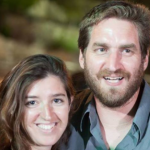
מורה נבוכים
3 אפריל, 2015 -
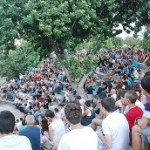
נפתח בית הספר האנתרופוסופי במכללת אורנים
8 ספטמבר, 2013 -

האם בתי הספר הממלכתיים ישרדו את המאה ה-21?
6 ספטמבר, 2017 -

מעשיות הילדים: עד כמה יש בהם מסרים מגדריים ?
17 ספטמבר, 2015
-
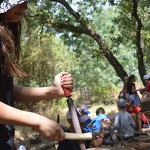
אנתרופוסופיה? חינוך יער? מעכשיו גם באקדמיה!
23 יולי, 2018 -
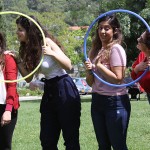
אמנויות בחינוך: מפתח לעתיד מבטיח בעידן הטכנולוגי
10 מאי, 2018 -

המהפכה בחינוך מתחילה באורנים
5 מרץ, 2018 -

האם בתי הספר הממלכתיים ישרדו את המאה ה-21?
6 ספטמבר, 2017 -
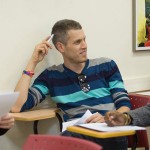
נא להכיר: הבוגרים של אורנים שמחוללים את מהפכת החינוך בישראל
26 יוני, 2017 -

לוח, גיר ואייפד: איך מתמודדים עם תלמידי עידן הדיגיטל?
17 מאי, 2017
The Power of the Spoken Word
Public Speech and Debate in the English Classroom
by Danielle Schaub
The Department of English Language and Literature has implemented an idea launched by Elisheva Barkon, organising a conference on debating and public speech on Monday 13 January. It generated much interest and participation from students and staff alike. Jack Pastor opened it with witty allusions, setting the tone for an outstanding conference. Elisheva then referred to The King's Speech and its message that with hard work one manages to overcome one’s weaknesses, asserting that "by the end of the day we will all leave informed on how to boost our performance as communicators and debaters.” Danielle Schaub, the conference organizer, went on comparing the firm rules of public speech and debating with a task the students engage in on a weekly basis, namely essay writing.
Michael Shapira, a world champion debater, addressed the subject of public speech in a stimulating and entertaining manner, sometimes using clips to illustrate points of his. Amongst others, he illustrated how politicians lose their mark by not thinking through their arguments and/or not preparing themselves properly for a speech in a foreign language.
Thereafter Nancy Peled and Danielle Schaub gave hands-on activities to assess speech delivery. After asking the students to prioritize basic elements for excellent oral delivery, they each read a famous speech, Danielle as one should, Nancy purposefully as one should not. The entire audience roared with laughter. Receiving the speeches with difficult words defined, the audience looked for rhetorical devices in the texts, thereafter understanding the speeches better when re-read.
Anat Shapira, a new lecturer in the Department of Communication, and European champion in individual debates, talked about “Debating as a Pedagogical Tool.” Anat shared her experience of debating at primary and secondary school level, throwing light on the pupils’ willingness to participate in class when coaxed to look for ways of arguing for or against ideas.
Last but not least, four non-native students of Anat Shapira’s — Hadas Kadosh (Technion), Meir Yarom (Haifa), Jennifer Mazgal (Haifa) and Sivan Avitan (Ben Gurion) — debated in excellent English whether class attendance should be mandatory. The debate ended with an animated question-and-answer session and the Oranim students asked to have a debating society in English at Oranim.
The students unanimously thanked the department for the enjoyable study day, ready to take action on their own learning process and speech delivery. Danielle reciprocated the thanks to the audience, and most particularly to the students for their undivided attention throughout the event and their eager participation throughout. She concluded that the day had clearly stressed the power of the spoken word and the relevance of public speech and debate in the English classroom. All in all, as Elisheva had said at first, the day turned out to be “a dream come true,” reinforcing the results of the new departmental policies and throwing light on the vibrancy of the department.
לסיקור כנס דיבייט ואמנות הנאום

Danielle, Thank you for such an informative and well–organized day!